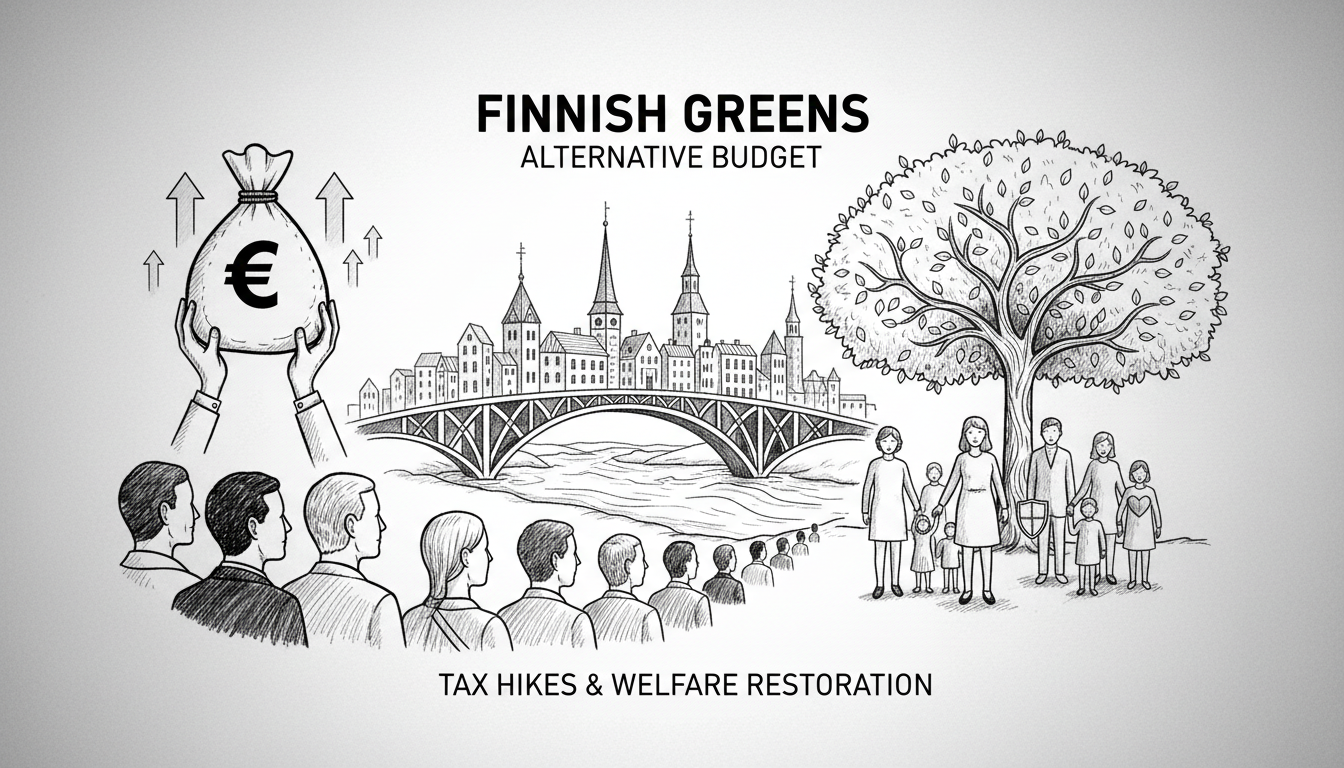Finland's Green Party has unveiled a comprehensive alternative budget proposal that challenges the government's fiscal plans. The Greens want to raise taxes on high earners and corporations while reversing cuts to social benefits and education funding.
The party's plan seeks additional revenue primarily from environmentally focused taxation measures. They propose canceling the current government's fuel tax reductions and implementing new levies on airline tickets and sugary foods. These environmental taxes would generate approximately 387 million euros in additional state revenue according to party calculations.
Green Party chair Sofia Virta presented the alternative budget that matches the government's borrowing levels but redistributes financial burdens differently. The proposal includes tax reforms totaling 1.7 billion euros, though the Greens haven't calculated the exact impact on Finland's overall tax rate.
The plan would scrap the government's planned marginal tax cuts for high-income earners. Instead, those reductions would target low and middle-income groups. For most income brackets, this would mean tens of euros more monthly compared to the government's proposal. The top two income deciles would face higher taxation under the Green alternative.
Corporate taxation would see substantial changes. The Greens propose reforming dividend taxation for unlisted companies, estimated to boost state coffers by 340 million euros. They also want to eliminate industrial subsidies, including halving reduced tax rates on machinery fuels and cutting support for industrial wood burning. These measures would generate approximately 450 million euros compared to the government's budget.
The mining tax would see both increases and expansion under the Green proposal. The changes to mining taxation are projected to bring about 100 million euros in additional revenue. Industrial electrification support would be canceled immediately rather than phased out as the current government plans.
On the spending side, the Greens would reverse all education cuts implemented by the current government. They would cancel planned reductions to housing benefits and restore unemployment security protections and child supplements. These social welfare measures would cost approximately 470 million euros more than the government's plan.
Overall, the alternative budget allocates over 800 million euros more to social security than the government's proposal. The Greens estimate this would lift about 40,000 low-income individuals above the poverty line.
Environmental protection would receive over 200 million euros in additional funding compared to the government's budget. Development cooperation would get 220 million euros more than current allocations.
The proposal represents a clear philosophical alternative to the current government's direction. It emphasizes wealth redistribution and environmental protection over austerity measures that primarily affect social services and education. This budget alternative comes amid ongoing debates about Finland's economic direction and how to balance fiscal responsibility with social welfare commitments.
Political observers note the Greens are positioning themselves as defenders of the welfare state while maintaining their environmental priorities. The party appears to be betting that Finnish voters will prefer tax increases on corporations and high earners over cuts to social benefits and public services. This proposal likely previews the Green Party's platform for future elections and sets clear battle lines in Finland's ongoing budget debates.

